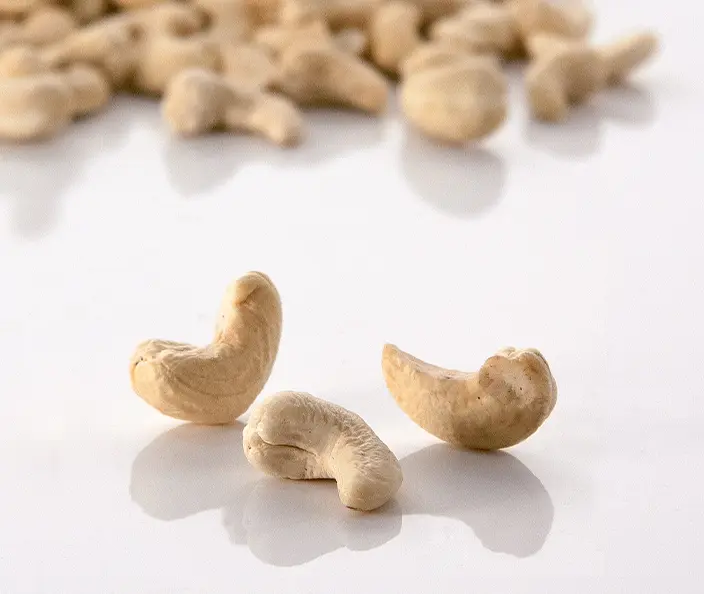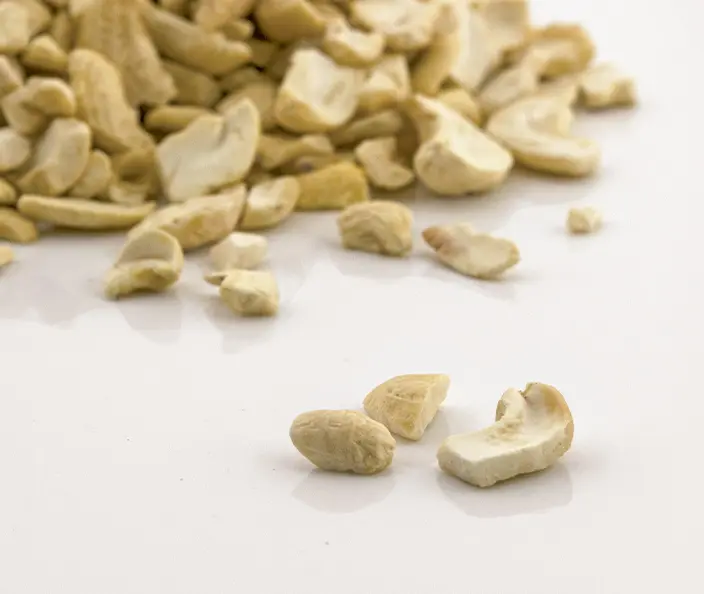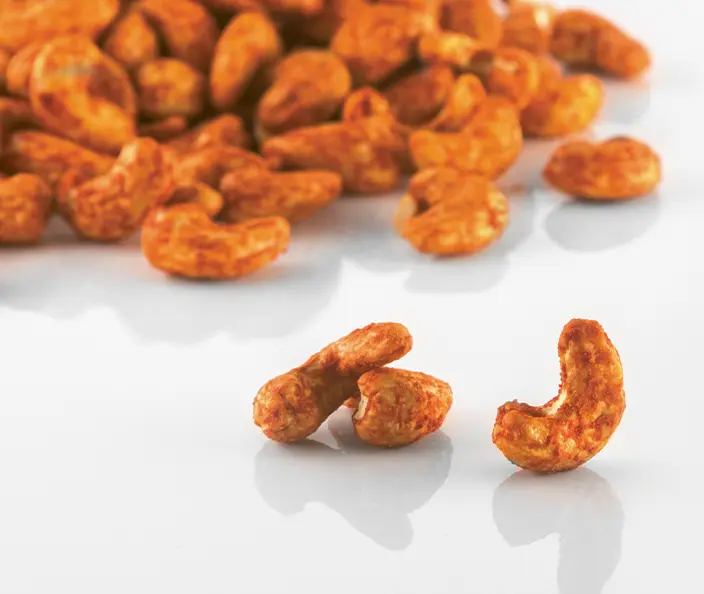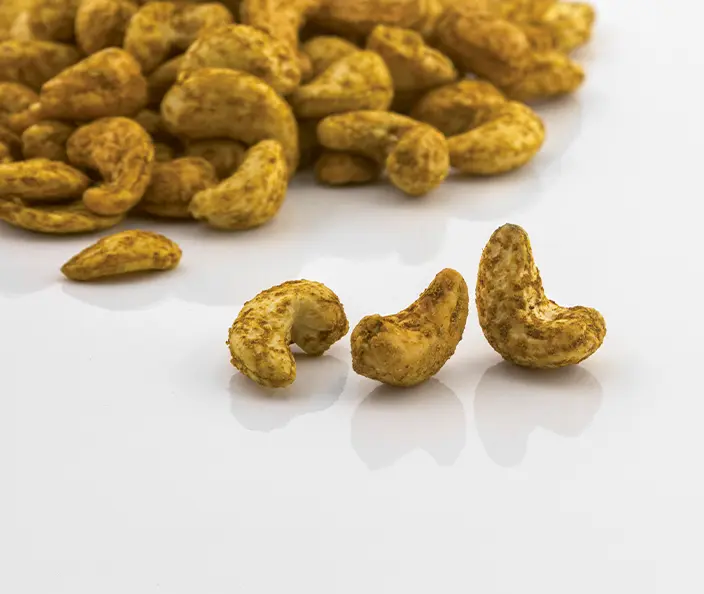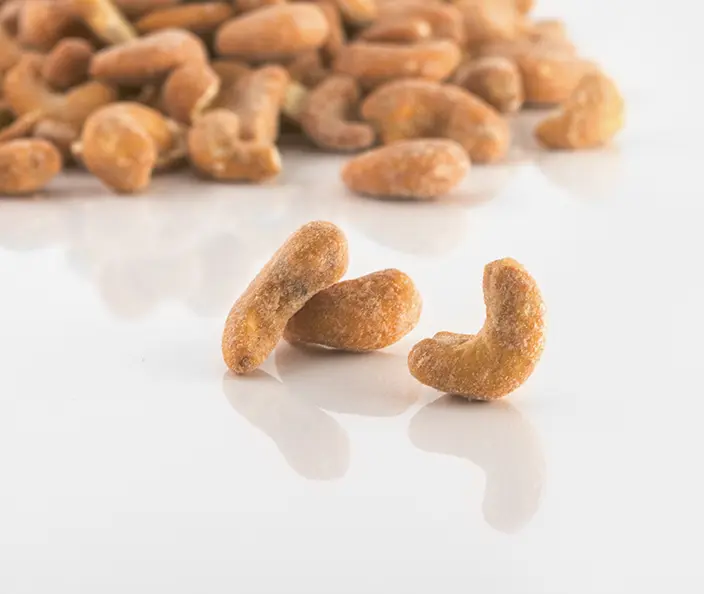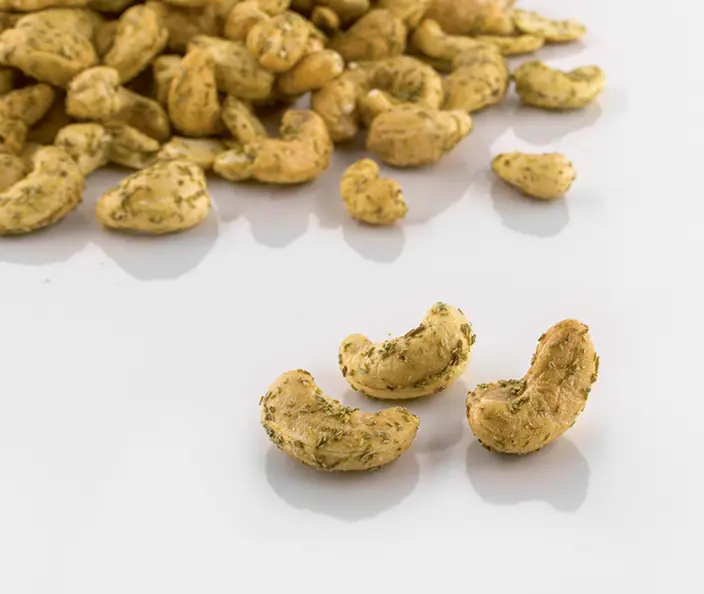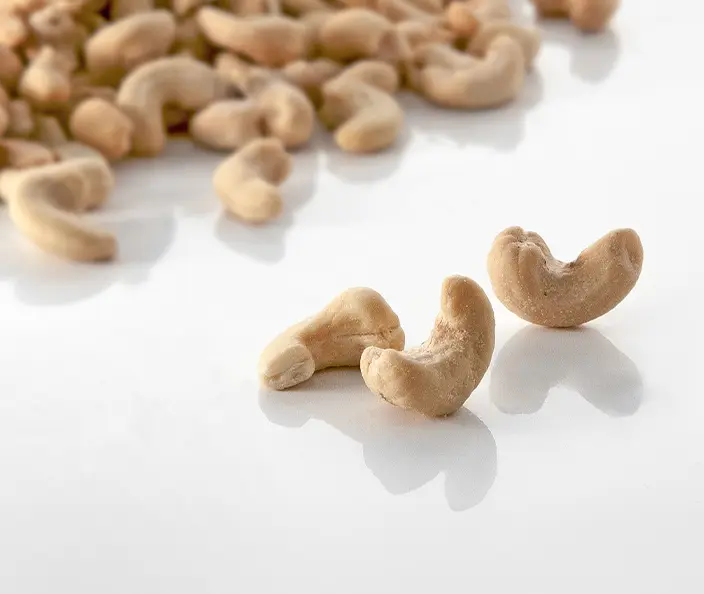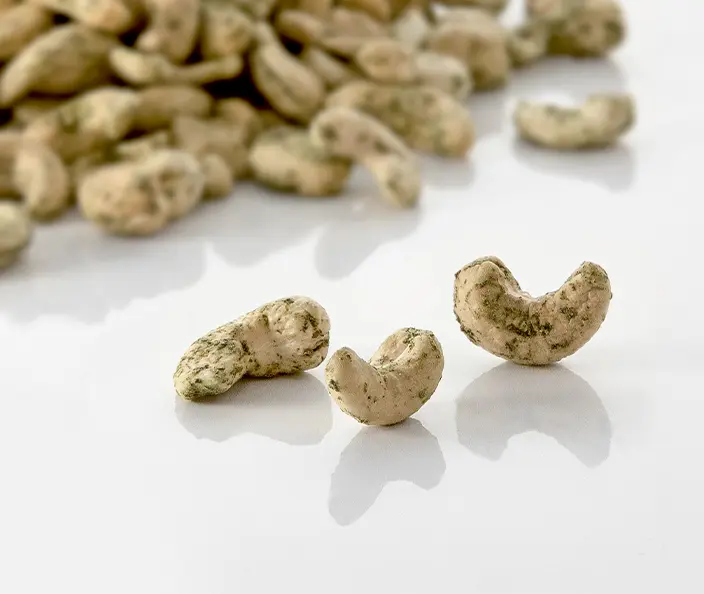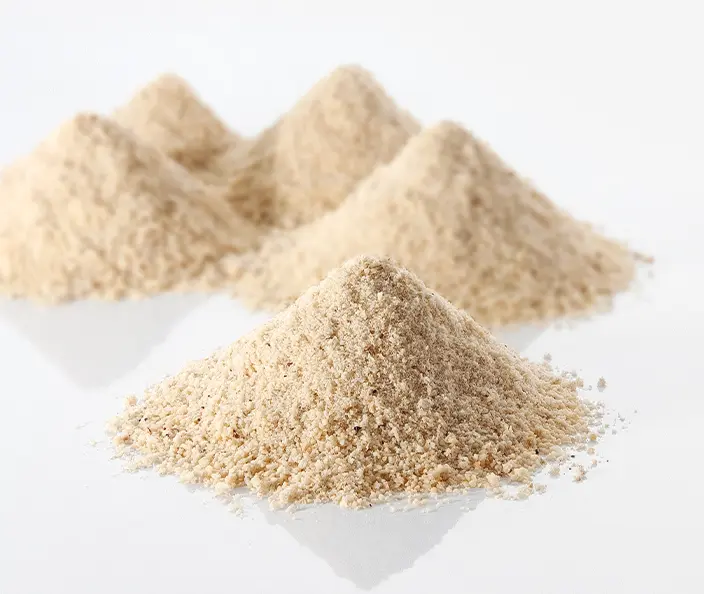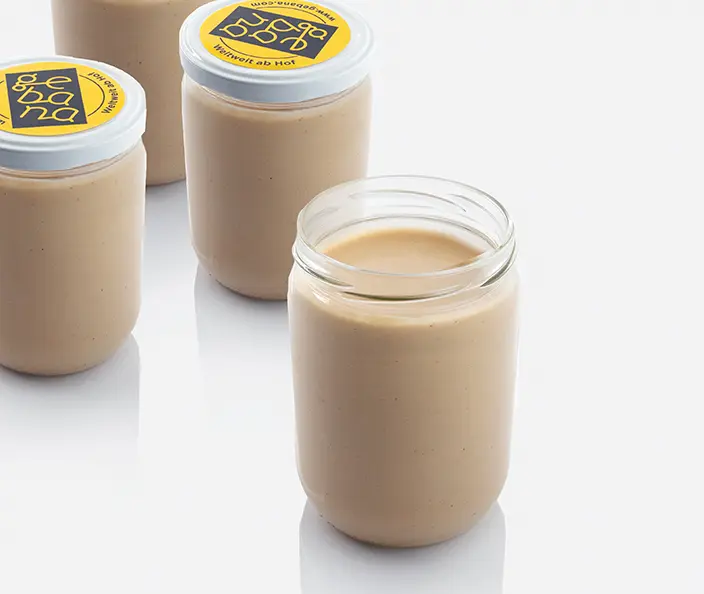Cashews without detours
We process our cashews where they grow: in Burkina Faso. Unfortunately, this is a rarity in the global trade in these tasty kernels.
Our Cashew Nuts are Cracked Locally
About 90 per cent of cashew nuts from West Africa are shipped to Asia for cracking. The raw nuts are exported in their shells and weigh five times as much as shelled nuts, making this practice completely irresponsible from an environmental point of view. But diverting the nuts to Asia also means that the opportunity to create added value and potential jobs in West Africa is lost. Unfortunately, organic and Fairtrade-certified nuts are not excluded from this practice. You can read more about the issues facing the cashew industry in our article here or in this article by the Swiss magazine Beobachter (in German).
We have our own processing plant in Burkina Faso. The employees who work at our factory in Bobo-Dioulasso crack and package the nuts on site in preparation for direct export to Europe.
How are Cashews Processed?
Once the cashews arrive at our factory, they need to be cracked, heated, cracked a second time, peeled and then sorted. Watch the video to see the labour-intensive steps necessary for us to enjoy our cashews:
Who Processes the Cashews?
Around 350 people crack, peel, sort and pack cashews at our factory in Bobo-Dioulasso. Most of them are women, and many have no education, making it difficult for them to find a job with good working conditions. The women who work in our factory all have an employment contract, providing them with a stable income as well as health insurance and social insurance benefits. The factory also has its own day-care centre and a health clinic, benefiting workers with children.
Processing cashews is hard work. Our employees crack and peel them by hand. When the outer shell is cracked, it releases a corrosive liquid. Without proper protection, this liquid can damage workers' skin. To prevent this, our workers apply cashew oil to their hands. This creates a natural barrier that counteracts the corrosive liquid, a method that has proven to be effective in preventing injuries. For more information, you can read our blog post on the subject.
Who Grows Our Cashews?
We buy raw cashews from over 2000 family farmers in Burkina Faso (as of 2022). Around 20 field agents pay regular visits to the families and maintain direct contact with them. They support the families in obtaining organic certification and train them in organic farming methods.
Since 2019, we have been paying our family farmers in Burkina Faso a 10 per cent share of the revenue we generate by selling their cashews in our online shop. This money is paid in addition to the organic and Fairtrade price as part of our gebana model.
Every kernel counts
In our online shop, you'll find whole cashew nuts and seasoned cashews, as well as by-products of cashew production: partially broken kernels, kernels processed into flour, cashew butter and dried cashew apples.
When cashews are cracked and peeled, there are always nuts that get broken. These cashew pieces are less valuable to retailers than whole cashews. This means we can offer them to you at a slightly lower price.
Ground cashews are generally not available in supermarkets. This product is made from tiny fragments of broken cashews and nuts that don't look quite perfect. Grinding these cashews into flour creates more added value locally. You can use it for baking, just like you would almond flour.
Our cashew butter tastes great on a slice of bread or as a topping over your morning muesli. And the cashew apple, the swollen fruit stem on which the nuts grow, is available in our shop as dried fruit.
We're Building a New Factory!
We want to grow so that we can work with more family farmers. To do this, we need a new factory in Burkina Faso, since our existing facility is at capacity. So, in 2021, we launched our Walls Against Walls crowdfunding project, raising more than 900,000 euro to build our new factory. We received large and small donations from over 2,000 people who supported this project.
At the end of 2021, we bought a piece of land near Bobo-Dioulasso and have been preparing to break ground ever since. Our goal is to create 1,000 new jobs! You can follow the progress of the project here.

 Login
Login


